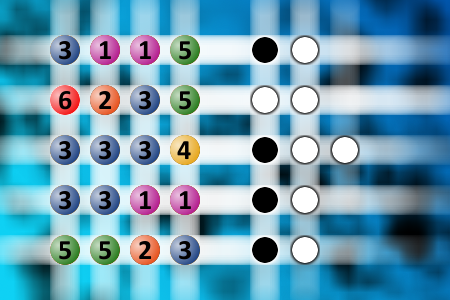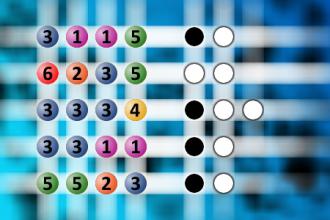Which is a winning combination of digits?
The computer chose a secret code (sequence of 4 digits from 1 to 6). Your goal is to find that code. Black circles indicate the number of hits on the right spot. White circles indicate the number of hits on the wrong spot.Correct answers: 37
The first user who solved this task is Djordje Timotijevic.
#brainteasers #mastermind

Clever News Reporter
A car was involved in an accident in a street. As expected a large crowd gathered. A newspaper reporter, anxious to get his story could not get near the car.
Being a clever sort, he started shouting loudly, "Let me through! Let me through! I am the son of the victim."
The crowd made way for him.
Lying in front of the car was a donkey.
Being a clever sort, he started shouting loudly, "Let me through! Let me through! I am the son of the victim."
The crowd made way for him.
Lying in front of the car was a donkey.

